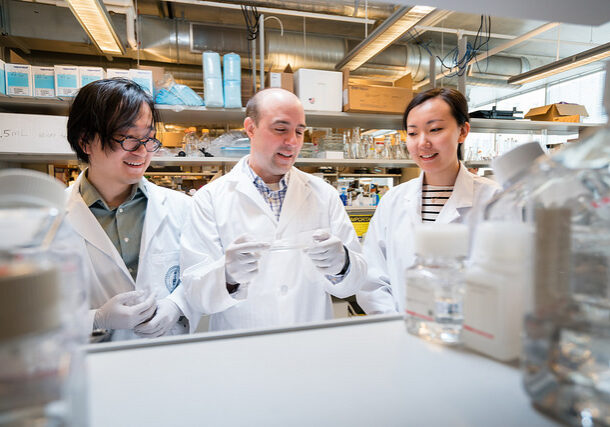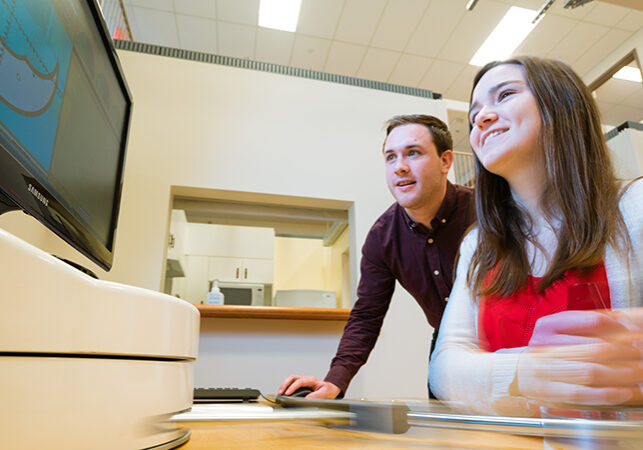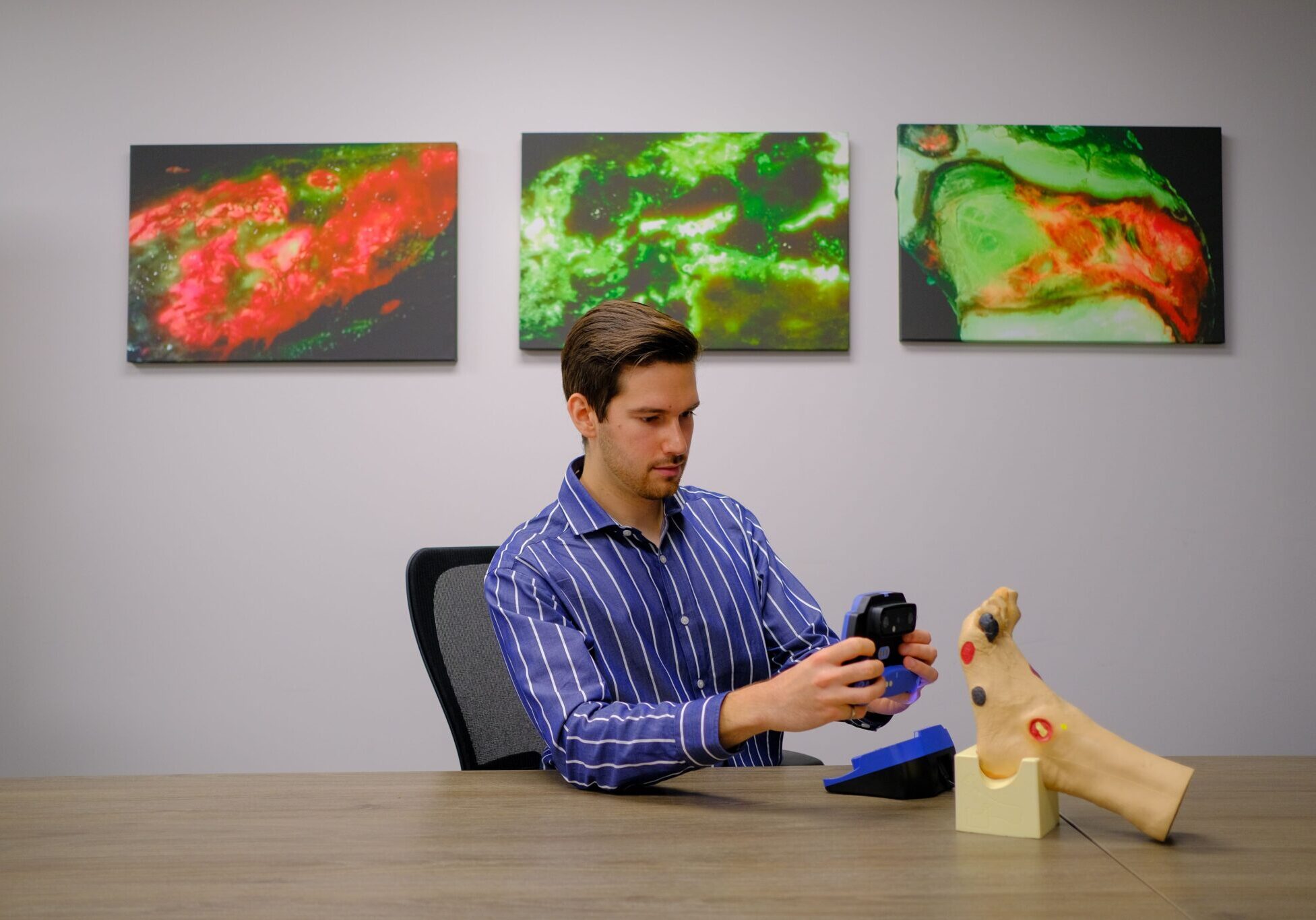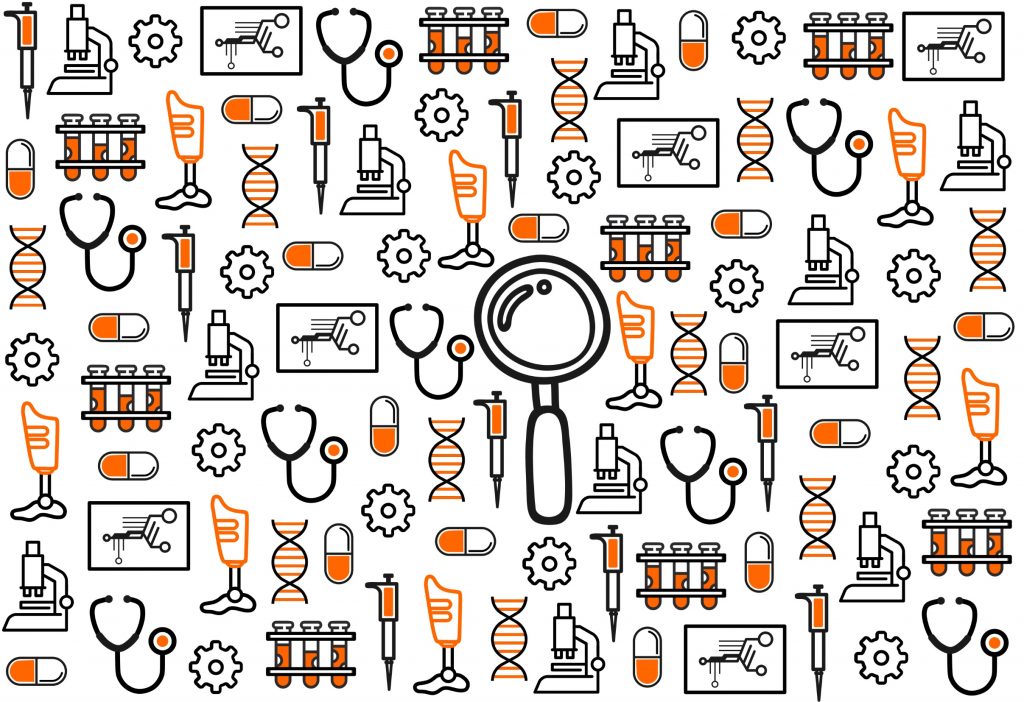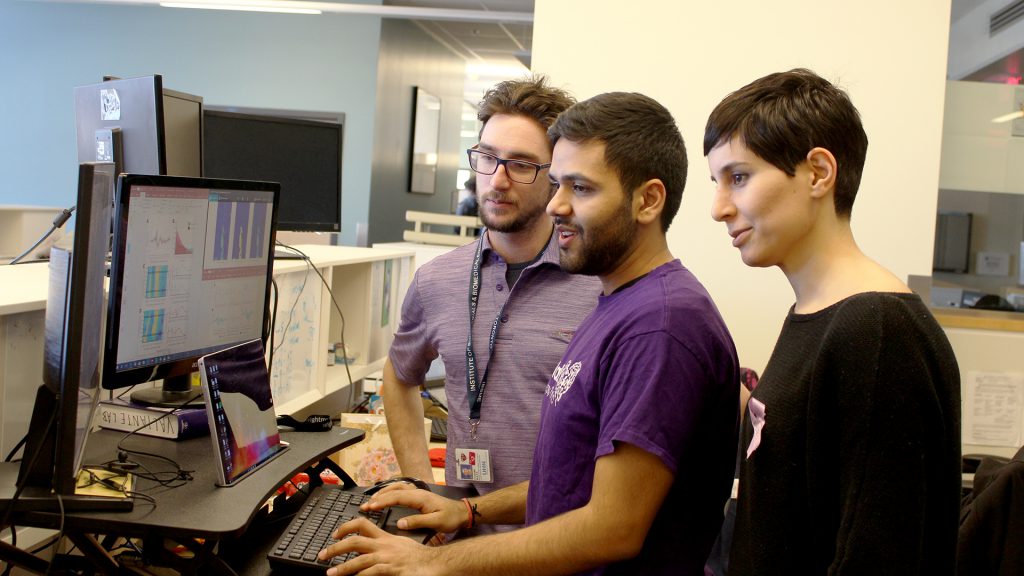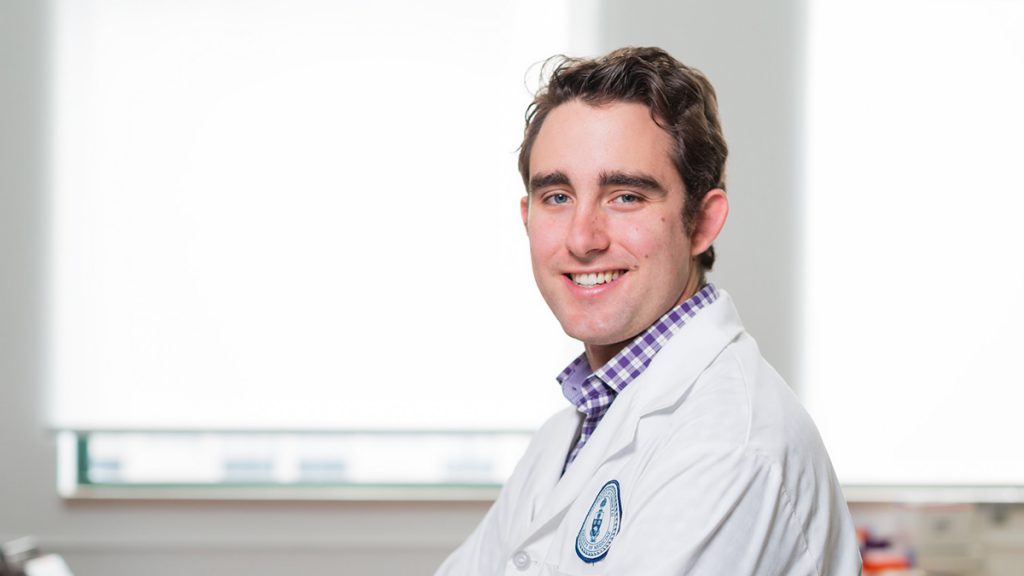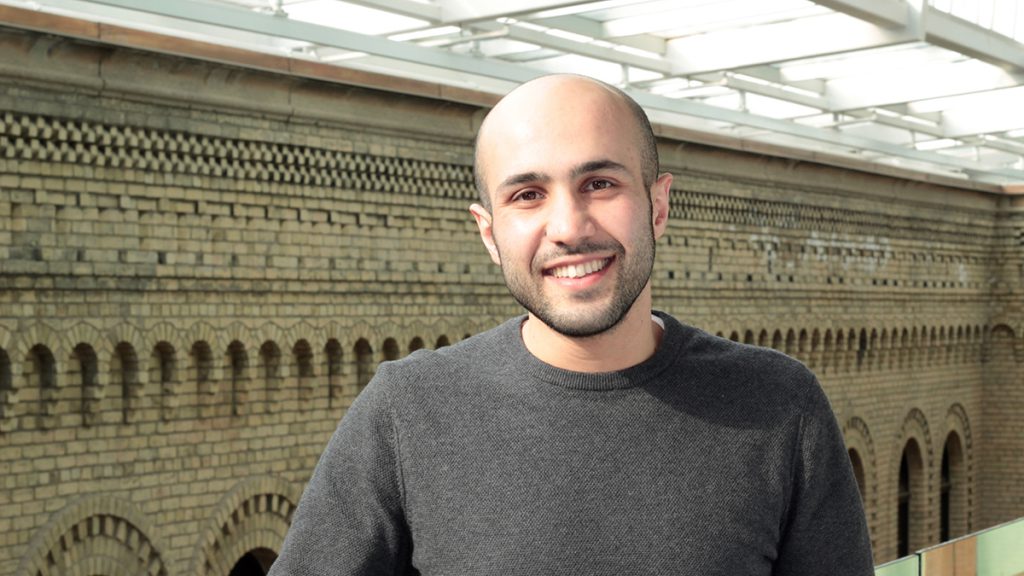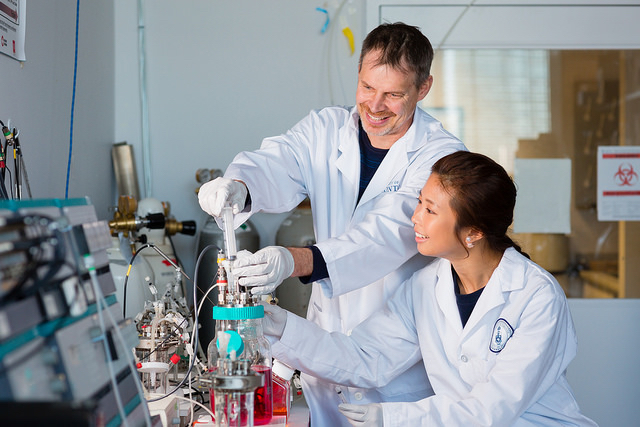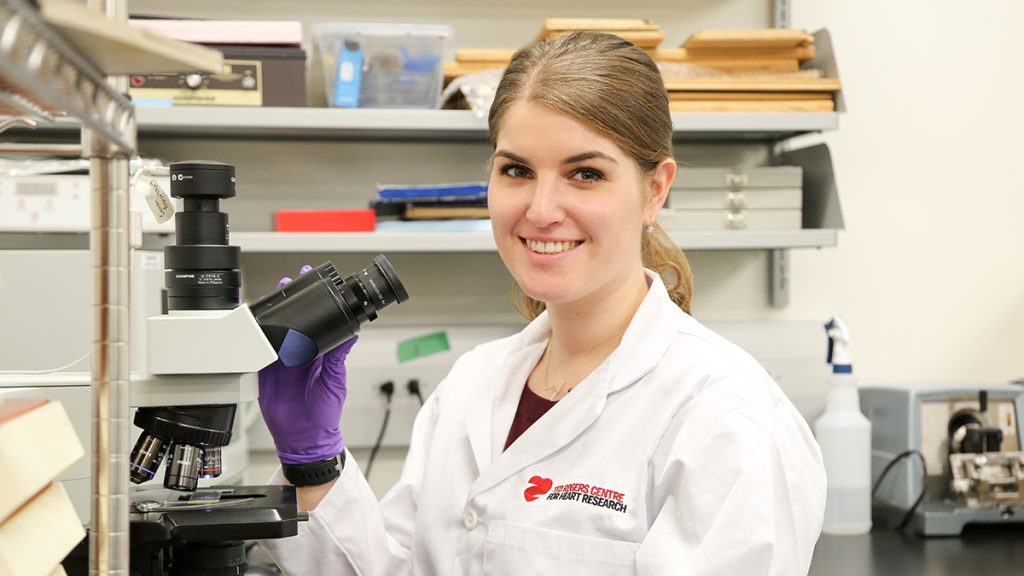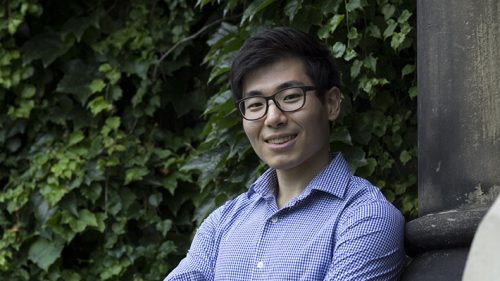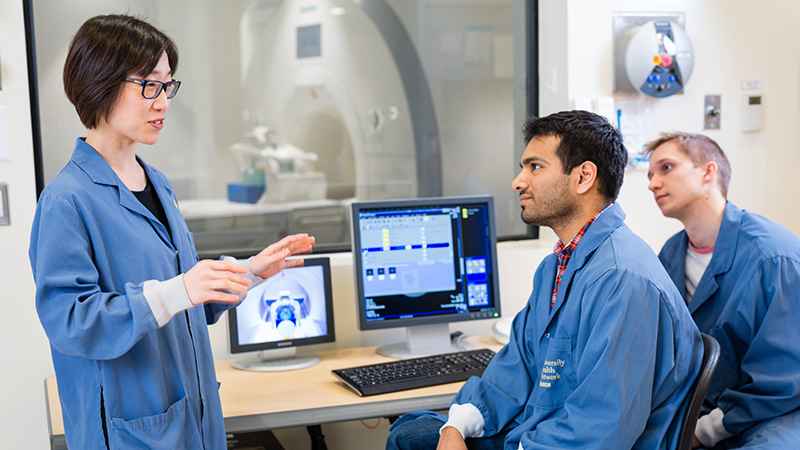Programs Overview
Overview
Are you a prospective student? Here at the Institute of Biomedical Engineering (BME), we connect researchers across the University of Toronto and its partner hospitals to develop innovative solutions to improve human health.
At the Institute of Biomedical Engineering (BME), we have 3 graduate programs and 2 undergraduate programs.
Graduate programs
Doctor of Philosophy
Research degree that exposes candidates to cutting-edge research in a laboratory
Master of Applied Science
Research degree that exposes candidates to cutting-edge research in a laboratory
Master of Engineering
Professional degree that exposes candidates to biomedical device design to commercialization
Graduate programs comparison
| Stream: | Research | Professional |
|---|---|---|
| Program: | PhD / MASc | MEng |
| Focus: | Research intensive training in a laboratory or clinical setting. | Training in biomedical device design, implementation, and commercialization. |
| Career Interests: | Individuals pursuing careers in academia, healthcare, government, or industry, who have a passion for research and development. • Motivated to conduct cutting-edge research • Passionate about academic collaboration and science communication • Keen on becoming key opinion leaders with distinct research specialization | Individuals interested in medical device production from design to implementation in human patients. • Seeking product design knowledge • Interested in learning entrepreneurship fundamentals • Eagar to gain real-world experience in the healthcare sector |
| Degree(s) Required: | Bachelor of Science, Bachelor of Engineering, Master of Applied Science (for PhD only), or Master of Engineering (PhD only). | Bachelor of Engineering or Bachelor of Science. |
| Outcome: | Program graduates excel as leaders in academia, industry, and government agencies across the globe. | Through work-integrated learning, graduates emerge as company founders, technology leaders, and start-up creators in the healthcare sector. |
| Program Length: | approx. 2 years (for MASc) or approx. 4 years (for PhD) | 1 year |
| Funding: | Unit-funded | Self-funded |
| Curricula: | • Coursework • Committee Meetings • Qualifying/Bypass Exam (for PhD) • Thesis • Defense • Final Oral Exam (for PhD) | • Coursework • Practical Experience |
Apply to graduate studies at BME
Undergraduate programs and opportunities
-
Year 1
Engineering Science (EngSci) program students learn fundamentals of different science disciplines and begin team-based design training through praxis courses.
Opportunities:
-
Year 4
Major students may focus on skill advancement and further knowledge and competencies through the completion of specialization courses, thesis, and design/capstone projects.
-
Year 1
Engineering students establish knowledge in math and applied & basic sciences.
-
Year 4
Minor students may focus on skill advancement in one of the three themes (mentioned above) toward becoming a specialist in their respective field.
Read more student news & stories
PhD student named U of T Alumni Association Graduate Scholar
March 13, 2018 | Locke Davenport Huyer is one of three students from across the university to be recognized in this category for scholarly achievements and community contributions.
Two IBBME students receive 2018 Dorrington Awards for excellence in graduate research
February 21, 2018 | Moshen Afshar and Alexander Vlahos have been recognized by the U of T Donnelly Centre for their work in muscle stem cells and a novel method to treat Type 1 Diabetes.
A repurposed drug could open door to more stem cell transplants for disease treatment
December 20, 2017 | A team of researchers led by Professor Peter Zandstra have found a way to increase likelihood of donor stem cell survival in patients.
She was born with heart defects. Now she’s researching a cure.
October 30, 2017 | U of T biomedical engineering student Bailey Bernknopf is working towards a better understanding of how aortic valve disease affects women and men differently.
Addressing unique patient needs with technology: U of T offers engineering training to medical students
September 22, 2017 | Master of Engineering program gives MD students advanced tools to develop medical technologies.
New course on advanced MRI techniques will teach students new ways to detect disease at earlier stages
September 13, 2017 | Professor Hai-Ling Margaret Cheng’s course will cover some of the latest in magnetic resonance imaging techniques, offering new solutions for human health challenges.
Four IBBME students named 2017 Cecil Yip Doctoral Research Award recipients
August 17, 2017 | PhD candidates studying nanoparticles for cancer drug delivery and biomaterials for nerve repair receive Donnelly Centre recognition.
